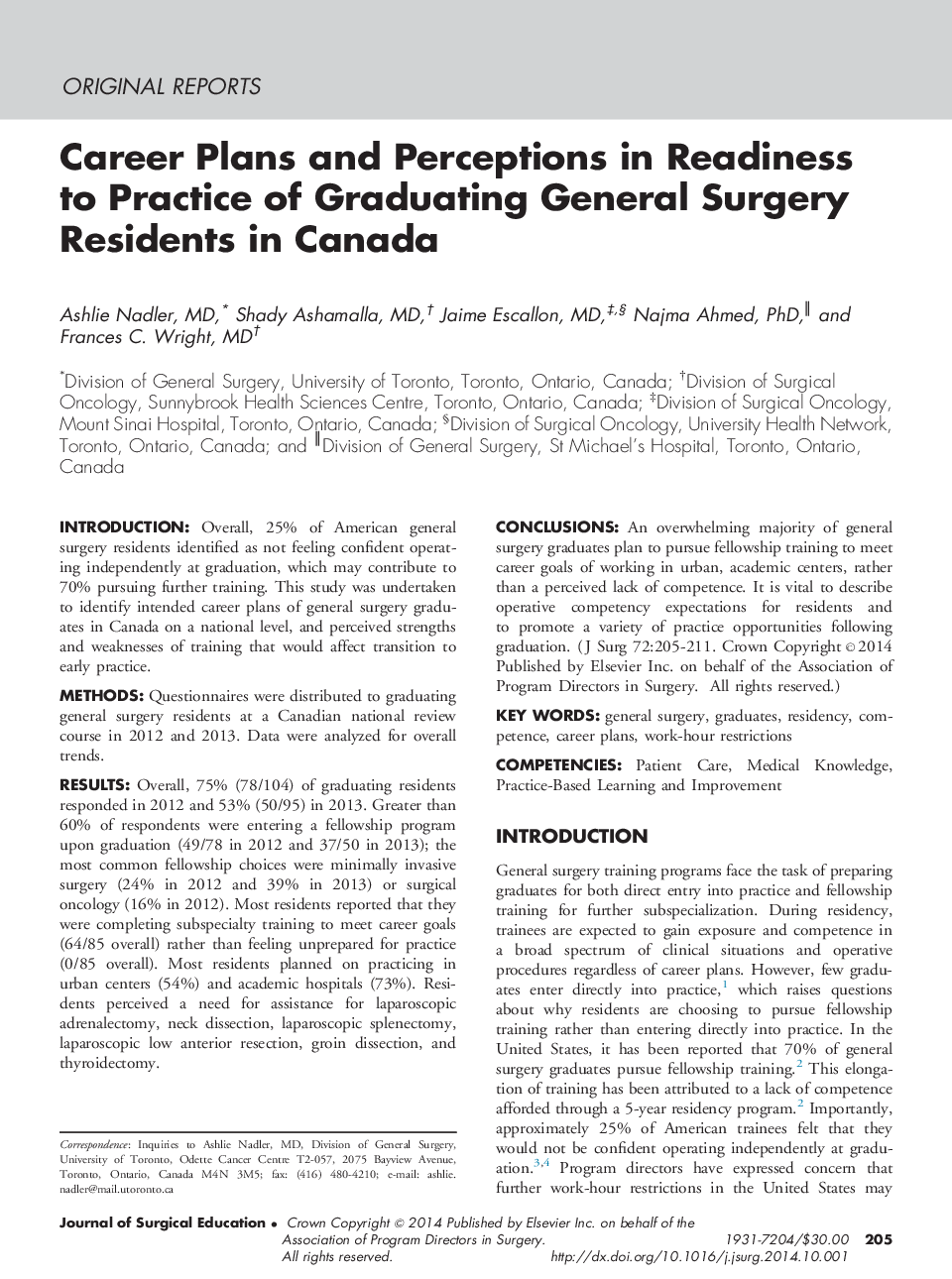| کد مقاله | کد نشریه | سال انتشار | مقاله انگلیسی | نسخه تمام متن |
|---|---|---|---|---|
| 4297657 | 1288327 | 2015 | 7 صفحه PDF | دانلود رایگان |
IntroductionOverall, 25% of American general surgery residents identified as not feeling confident operating independently at graduation, which may contribute to 70% pursuing further training. This study was undertaken to identify intended career plans of general surgery graduates in Canada on a national level, and perceived strengths and weaknesses of training that would affect transition to early practice.MethodsQuestionnaires were distributed to graduating general surgery residents at a Canadian national review course in 2012 and 2013. Data were analyzed for overall trends.ResultsOverall, 75% (78/104) of graduating residents responded in 2012 and 53% (50/95) in 2013. Greater than 60% of respondents were entering a fellowship program upon graduation (49/78 in 2012 and 37/50 in 2013); the most common fellowship choices were minimally invasive surgery (24% in 2012 and 39% in 2013) or surgical oncology (16% in 2012). Most residents reported that they were completing subspecialty training to meet career goals (64/85 overall) rather than feeling unprepared for practice (0/85 overall). Most residents planned on practicing in urban centers (54%) and academic hospitals (73%). Residents perceived a need for assistance for laparoscopic adrenalectomy, neck dissection, laparoscopic splenectomy, laparoscopic low anterior resection, groin dissection, and thyroidectomy.ConclusionsAn overwhelming majority of general surgery graduates plan to pursue fellowship training to meet career goals of working in urban, academic centers, rather than a perceived lack of competence. It is vital to describe operative competency expectations for residents and to promote a variety of practice opportunities following graduation.
Journal: Journal of Surgical Education - Volume 72, Issue 2, March–April 2015, Pages 205–211
